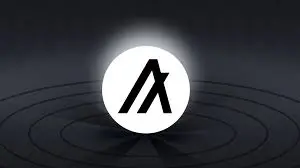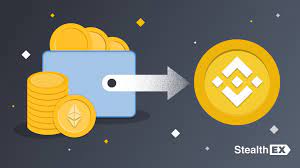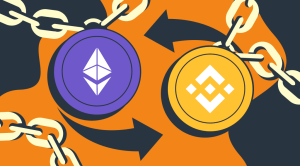
Introduction
The PeerPlays Blockchain is an innovative, decentralized platform that brings a new level of transparency, fairness, and security to the gaming industry. By leveraging the power of blockchain technology, PeerPlays aims to revolutionize the way people interact with online games, contests, and tournaments. In this comprehensive article, we will explore the core features of PeerPlays Blockchain, its benefits, and its potential impact on the gaming industry.
Section 1: Understanding the Basics of PeerPlays Blockchain
The PeerPlays Blockchain is a cutting-edge decentralized gaming platform built on top of Graphene, an open-source blockchain technology known for its speed, scalability, and security. The platform enables users to create and participate in various games and contests without the need for traditional intermediaries. Its primary components include:
1.1 Decentralized Gaming: PeerPlays eliminates the need for central authorities, enabling a truly decentralized gaming experience. This means that games can be developed and operated by individuals or small teams without the need for a large centralized gaming corporation.
1.2 Smart Contracts: The platform utilizes smart contracts to automate and secure the rules and processes of each game. This ensures that games run smoothly and fairly, with no possibility of manipulation or fraud.
1.3 Token Economy: The PeerPlays ecosystem is powered by its native cryptocurrency, PeerPlays Token (PPLY). Users can earn, trade, and spend PPLY tokens within the platform, enabling a vibrant and thriving token economy.
1.4 Transparency and Security: By leveraging the power of blockchain technology, PeerPlays ensures a high level of transparency and security for all users. All transactions and game outcomes are recorded on the blockchain, creating an immutable record that cannot be altered or tampered with.
Section 2: The Benefits of PeerPlays Blockchain
The PeerPlays Blockchain offers numerous benefits over traditional gaming platforms, which include:
2.1 Fairness: With the elimination of centralized control and the use of smart contracts, PeerPlays ensures that games are provably fair. Players can trust that the rules are being followed and that the outcomes are truly random.
2.2 Transparency: The platform’s use of blockchain technology ensures complete transparency in all aspects of gaming. Players can verify the fairness of games, track their transaction history, and access a wealth of information on the platform’s performance and security.
2.3 Security: Decentralization and the use of advanced cryptographic techniques make the PeerPlays Blockchain highly secure. Players can trust that their funds and personal information are safe from hacks and other malicious activities.
2.4 Scalability: The Graphene technology that underpins the PeerPlays Blockchain enables rapid transaction processing and scalability. This allows the platform to support a growing number of users and games without compromising performance or user experience.
2.5 Cost Efficiency: By removing intermediaries and automating processes through smart contracts, PeerPlays can significantly reduce the costs associated with traditional gaming platforms. This translates to lower fees for players and higher profit margins for game developers.
Section 3: PeerPlays Blockchain Use Cases
The PeerPlays Blockchain is designed to support a wide variety of gaming applications, including:
3.1 Online Gaming: The platform’s decentralized nature and smart contract functionality make it an ideal foundation for online games, ranging from casino-style games like poker and roulette to skill-based games like chess and trivia.
3.2 eSports: PeerPlays can provide a transparent and fair platform for eSports competitions, where players can compete in popular titles like Fortnite, League of Legends, and Dota 2.
3.3 Prediction Markets: The platform’s smart contract capabilities make it suitable for creating and managing prediction markets. Users can place bets on the outcome of various events, such as sports matches, political elections, or financial market movements.
3.4 Decentralized Autonomous Tournaments: PeerPlays enables users to create and participate in decentralized tournaments, where the rules, prize distribution, and other parameters are governed by smart contracts. This ensures fairness and transparency in competitive gaming events.
3.5 Gaming DApps: Developers can build decentralized applications (DApps) on the PeerPlays Blockchain, offering a wide range of gaming experiences that leverage the platform’s unique features and benefits.
Section 4: The PeerPlays Token Economy
The PeerPlays ecosystem is powered by its native cryptocurrency, PeerPlays Token (PPLY). The token has multiple uses and functions within the platform, including:
4.1 In-Game Currency: PPLY tokens can be used as in-game currency for various games and applications on the platform. Players can earn, spend, and trade tokens as they engage with the gaming ecosystem.
4.2 Staking: Users can stake their PPLY tokens to participate in the platform’s governance and decision-making processes. Staking also entitles users to a share of the platform’s revenue, providing a passive income opportunity.
4.3 Platform Fees: PPLY tokens are used to pay for various platform fees, such as transaction fees, game entry fees, and other service charges.
4.4 Developer Incentives: Game developers can earn PPLY tokens as rewards for creating popular and successful games on the platform. This incentivizes innovation and attracts talented developers to the PeerPlays ecosystem.
Section 5: The Future of PeerPlays Blockchain and the Gaming Industry
As the gaming industry continues to grow and evolve, decentralized platforms like PeerPlays Blockchain have the potential to significantly impact the landscape. Key areas of influence include:
5.1 Democratizing Game Development: By providing an open and accessible platform, PeerPlays empowers small developers and individuals to create and launch their own games, leveling the playing field and fostering innovation.
5.2 Promoting Fair and Transparent Gaming: The platform’s commitment to fairness, transparency, and security can help restore trust in the gaming industry, particularly in areas like online gambling, where concerns about fairness and cheating are prevalent.
5.3 Enabling New Business Models: PeerPlays Blockchain allows developers to explore new revenue models, such as token-based economies, decentralized tournaments, and prediction markets. This can lead to new and exciting gaming experiences for players.
5.4 Fostering Global Gaming Communities: By eliminating geographic restrictions and enabling cross-border transactions, PeerPlays can help create a truly global gaming community that transcends borders and unites players from around the world.
Conclusion
The PeerPlays Blockchain represents a significant leap forward for the gaming industry, offering a decentralized, transparent, and secure platform for game development and participation. By leveraging the unique features of blockchain technology, PeerPlays has the potential to reshape the gaming landscape and create a more equitable and engaging experience for players, developers, and other stakeholders. As the platform continues to grow and evolve, it will be fascinating to see the innovative ways in which the gaming community embraces and interacts with this groundbreaking technology.





